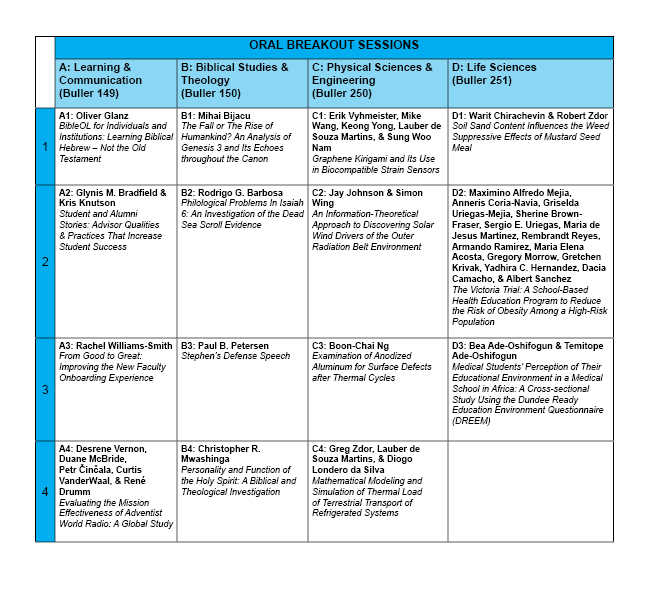D-2 The Victoria Trial: A School-Based Health Education Program to Reduce the Risk of Obesity Among a High-Risk Population
Presenter Status
Associate Professor, Department of Public Health, Nutrition and Wellness
Second Presenter Status
Associate Professor, Teaching, Learning and Curriculum
Third Presenter Status
Consultant, Psycology and Curriculum Development
Fourth Presenter Status
Associate Professor, Public Health, Nutrition and Wellness
Fifth Presenter Status
Officer, Prevention Services
Sixth Presenter Status
Officer, Prevention Services
Seventh Presenter Status
Officer, Prevention Services
Eighth Presenter Status
Physical Education Instructor
Ninth Presenter Status
Nutrition Professor, School of Public Health
Tenth Presenter Status
Assistant Professor, Public Health, Nutrition and Wellness
Eleventh Presenter Status
Assistant Professor, Public Health, Nutrition and Wellness
Preferred Session
Oral Session
Start Date
4-11-2016 3:15 PM
End Date
4-11-2016 3:30 PM
Presentation Abstract
Background: Childhood obesity is a mayor global public health problem which affect disproportionately Hispanic children. Therefore, The Amate, Activate, Cuidate, Comparte [Love Yourself, Activate Yourself, Take Care of Yourself, and Share] model was tested in two schools that have a high rate of overweight (30%) and obesity (26%) in Tamaulipas, Mexico.
Methods: This health education model that includes physical activity, nutrition education and school-lunch was pilot tested in two schools, with an experimental and control group. The curriculum was based in social cognitive theory, positive psychology and pedagogical principles. This health and wellness model was developed and implemented through the synergistic work of Andrews University, the Department of Health, the Department of Education of Tamaulipas, local schools, parents, teachers, and children. The body mass index (BMI), eating habits, and physical activity were assessed before and after the intervention.
Results: The trend in body mass index (BMI) of the children in the experimental group was reversed while BMI in the control group continued climbing.
Conclusion: The program has been effective to change the trend in body mass index (BMI) of the children in the experimental group. The model deserves to be tested in more schools for a longer period of time.
D-2 The Victoria Trial: A School-Based Health Education Program to Reduce the Risk of Obesity Among a High-Risk Population
Background: Childhood obesity is a mayor global public health problem which affect disproportionately Hispanic children. Therefore, The Amate, Activate, Cuidate, Comparte [Love Yourself, Activate Yourself, Take Care of Yourself, and Share] model was tested in two schools that have a high rate of overweight (30%) and obesity (26%) in Tamaulipas, Mexico.
Methods: This health education model that includes physical activity, nutrition education and school-lunch was pilot tested in two schools, with an experimental and control group. The curriculum was based in social cognitive theory, positive psychology and pedagogical principles. This health and wellness model was developed and implemented through the synergistic work of Andrews University, the Department of Health, the Department of Education of Tamaulipas, local schools, parents, teachers, and children. The body mass index (BMI), eating habits, and physical activity were assessed before and after the intervention.
Results: The trend in body mass index (BMI) of the children in the experimental group was reversed while BMI in the control group continued climbing.
Conclusion: The program has been effective to change the trend in body mass index (BMI) of the children in the experimental group. The model deserves to be tested in more schools for a longer period of time.




Acknowledgments
This research was partially funded by the Andrews University through the Faculty Research Grant Office of Research and Creative Scholarship